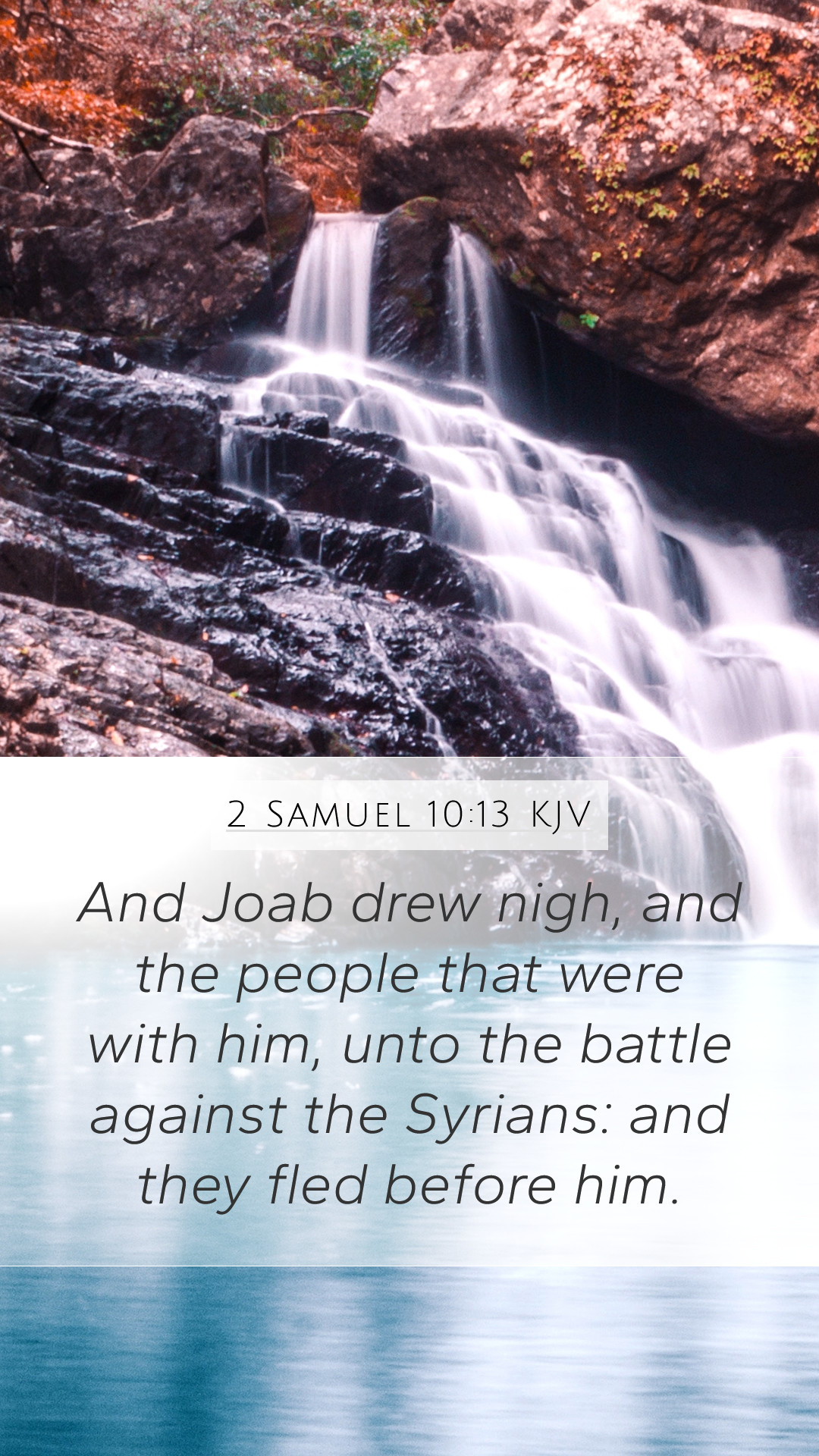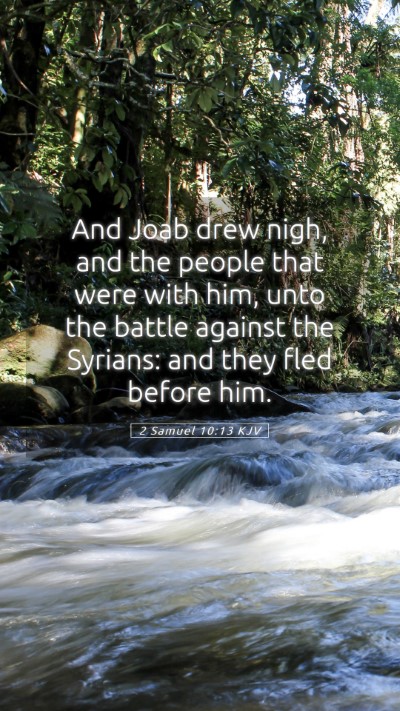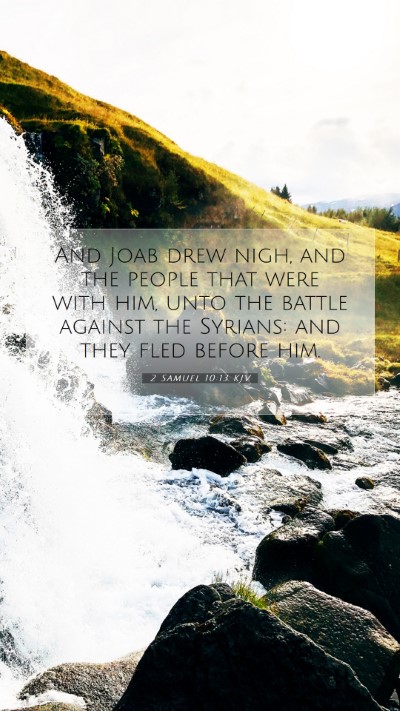Old Testament
Genesis Exodus Leviticus Numbers Deuteronomy Joshua Judges Ruth 1 Samuel 2 Samuel 1 Kings 2 Kings 1 Chronicles 2 Chronicles Ezra Nehemiah Esther Job Psalms Proverbs Ecclesiastes Song of Solomon Isaiah Jeremiah Lamentations Ezekiel Daniel Hosea Joel Amos Obadiah Jonah Micah Nahum Habakkuk Zephaniah Haggai Zechariah Malachi2 Samuel 10:13 Meaning
What is the meaning of 2 Samuel 10:13?
And Joab drew nigh, and the people that were with him, unto the battle against the Syrians: and they fled before him.
2 Samuel 10:13 Bible Verse Meaning
Understanding 2 Samuel 10:13: A Comprehensive Commentary
Bible Verse: 2 Samuel 10:13 - "And Joab drew nigh, and the people that were with him, unto the battle against the Syrians: and they fought against them."
Introduction to the Verse
The context of 2 Samuel 10:13 involves a significant military confrontation that reflects on themes of leadership, strategy, and the nature of conflict. This verse illustrates Joab, the commander of David’s army, as he engages in battle against the Syrians, a powerful adversary at this time.
Verse Overview
This verse serves as a crucial moment in the narrative, emphasizing the military campaigns of King David. Joab's leadership is spotlighted here, capturing the essence of military duty and the fulfillment of God's promise to David.
Insights from Commentaries
Matthew Henry's Commentary
Matthew Henry emphasizes the military prowess of Joab and the importance of divine favor in battle. In his analysis, he points out that God's people can face overwhelming odds yet emerge victorious through faith and courage. This passage serves as a reminder that leadership and divine assistance are critical components of success, highlighting Joab's reliance on God amidst adversity.
Albert Barnes' Commentary
Albert Barnes provides a detailed look at the historical context of this conflict. He discusses the various alliances and enmities among the nations during this period. Barnes highlights that Joab’s decision to lead the charge reflects a strategic military understanding that was necessary for Israel to assert its dominance in the region.
Adam Clarke's Commentary
Adam Clarke delves into the character of Joab, analyzing his motivations and tactics in warfare. He notes that Joab was a complex figure—bold yet often ruthless. Clarke suggests that the success of the battle was not just a matter of military strategy but also of spiritual significance, emphasizing the reliance on God for victory.
Key Themes and Applications
- Courage in Warfare: The verse highlights the bravery required to confront adversaries, a theme that resonates with believers facing their own challenges.
- Divine Strategy: The text reflects the idea that God’s guidance is crucial in making strategic decisions, applicable to all believers seeking wisdom in difficult situations.
- Leadership Qualities: Joab’s actions model attributes of effective leadership—taking initiative and rallying people during challenging times. This teaches valuable lessons for anyone in a leadership role.
Cross References
For further understanding, consider these related verses:
- 1 Chronicles 19:11-15 - This passage describes the same battle from a different perspective, offering additional context.
- 2 Samuel 8:5-6 - This segment discusses David’s victories over the Philistines and Moabites, showing the broader scope of conflicts during his reign.
- Psalm 20:7-8 - This psalm speaks of trust in God versus reliance on military might, echoing the spiritual themes present in 2 Samuel 10:13.
Conclusion
The analysis of 2 Samuel 10:13 not only sheds light on biblical history but also provides valuable insights for modern readers. The themes of courage, reliance on God, and effective leadership have lasting relevance both in spiritual and practical contexts. For those interested in Bible verse meanings or Bible verse interpretations, this verse encapsulates key elements of faith, strategy, and the complexities of leadership.


